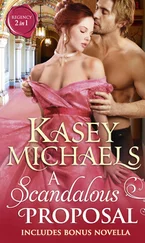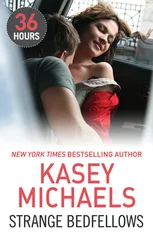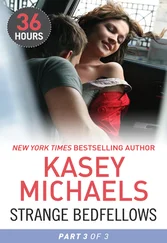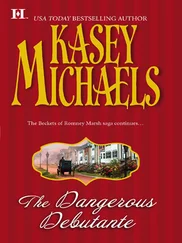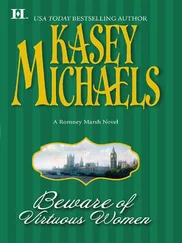“For heaven’s sake, I cannot abide the idea that you’re willing to throw that poor girl to the dogs to satisfy a debt that could be paid with the stroke of a pen.”
“Poor girl?” He stared at her in disbelief. “The woman is practically a pirate.”
“Don’t you remember her at that garden party at Lolly’s, pining after McCutcheon like a lost puppy? No, of course you wouldn’t. Such a spectacle, but then, we were young. We all gave our hearts recklessly at that age.” Honoria sighed. “Poor thing.”
“Poor thing?” Incredulous, Nick put his hands on the desk. “She took a corsair prize!”
“Defending the Barbary reign of terror, brother dear?” She arched a brow at him. “She freed twenty English captives, which is a good deal more exciting than anything I’ve done this season.”
“Will you join your dear friend Lady Pennington aboard that pirate ship? Oh, yes, I can just imagine you with a mop in those dainty hands, swabbing decks.”
“I highly doubt Philomena is swabbing decks. And it is not a pirate ship. The last letter I had from her told of glorious adventure—which, though I’m not well-versed in the law, I know to be perfectly legal.” Her green eyes turned worried. “I only hope the tempest that caught our James did not find them, as well.” She pried one of Nick’s hands off the desk and held it in her own, and he felt like a cad for picking a fight with her—the only sibling he had left. “When the only person standing with you is Yost,” she said, “it’s a good sign you’re going the wrong direction.”
“They’ll come around.”
“Lord Dunscore was well loved.”
He didn’t need her to tell him that. He pulled his hand free and paced back to the fire. “I think he even befriended the parliamentary rats with stray crumbs,” he said in disgust. The terrible thing was Nick had liked him, too. Always ready with a laugh, always up for a night of drink and debauchery, always offering use of his horses, carriage, houses—the man would have done anything for anybody. Poor fellow had tried like hell to ransom his daughter out of Morocco after her capture, but the dey had given her as a gift to a cousin in Algiers who had not been interested in ransom money. It was only when a handful of captives she’d rescued had come home with their tale of a Scottish virago sea captain that anyone knew she had escaped captivity. Lord Dunscore had disappeared up north for months drowning his sorrows. “She broke his heart not coming home,” Nick added.
“But he didn’t disinherit her.”
“In England she never would have inherited in the first place.”
“Be that as it may, the estate is in Scotland, and harridan though she may be, she has inherited. As a matter of principle, it’s not the House of Lords’ place to interfere.”
The irony of Honoria calling someone else a harridan was almost too much. “This has nothing to do with principle. Only with satisfying Holliswell.”
“And marrying his daughter, although you already know my opinion on that.”
“Yes. And I’ll thank you not to repeat it.” It wasn’t enough that Holliswell held Nick’s debt. Holliswell’s daughter held his heart. The moment Nick had set eyes on her, it was clear that the lovely, gentle Clarissa Holliswell was a helpless pawn in Holliswell’s lustful quest for connections. Holliswell wanted the Dunscore title for himself, yes—but failing that, he’d made it clear he would marry Clarissa to even the oldest, most licentious beard splitter in England if the man had the right title.
Baron, Nick had already discovered, was not the right title.
“If this business is keeping you from happiness,” she said, “it has everything to do with principle.”
Dear Honoria, loyal to a fault and impervious to shortcomings. He smiled a little, only to have the rudimentary curve shrivel on his lips. Happiness. It was a ravenous beast, insatiable, incapable of satisfaction no matter how much one fed it.
“Just use the money from the Croston estate,” she said sadly. “The title belongs to you now, and it’s what James would have wanted.”
It was out of the question. “I incurred this debt of my own doing, and I shall discharge it the same way.” Once this bill passed, it was all but certain the Dunscore estate and title would be settled on Holliswell. And once Holliswell became the Earl of Dunscore, he would forgive Nick’s debt and bless his union with Clarissa.
Or so Nick hoped.
* * *
WHATEVER JAMES MIGHT have wanted, what he’d received was a demotion of monumental proportions.
Deep in the hold, he pushed the end of a broom into the crevice between a stack of crates and raked out a wad of rats’ nests. Five days of emptying slop buckets, carrying water, cutting biscuits, swabbing decks—it should have made him furious. He tried for something like outrage when he shoved the next handful of disgusting mess into the bucket, but all he did was scrape his knuckles against the wood.
He yanked his hand away with a hiss.
That he couldn’t work up a good fury over something like this was proof he wasn’t himself. Perhaps he was ill. But then, he’d been wondering that for months now with no sign of physical manifestation. His ship’s surgeon—God rest his soul—had suggested malaise. If nothing else, all this work had him sleeping like a babe in that creaking, knotty hammock he’d been relegated to. But his joints ached like the devil.
The menial tasks, of course, were punishment for being “practically of one mind” with the supposedly ruthless Captain Warre, whose merciless brother threatened her family estate. But poor Lieutenant Barclay wasn’t being punished for Nick’s sins, that much was clear. He was being punished for Captain Warre’s.
Wouldn’t she be disappointed to know that the impassioned naval captain for whom she cherished such a special hatred had been dead for at least a year, perhaps two. The tenacious, single-minded man he used to be had gone missing as completely as the bodies of the men aboard the Henry’s Cross. All that was left was a man who, he could assure her, was much less satisfying.
But if this was Barclay’s penalty for simply knowing him, he preferred not to know what his fate would be if she knew his true identity. Incarceration, probably—and he’d be damned before he let her know he preferred menial tasks over idleness. He wanted his idleness on his own terms, preferably with a generous glass of something expensive and strong.
Briskly he swept out the crevice, shined the lantern to see the result and repeated the process until not even a mote of dust remained. He scooped the mess into a bucket and got on his hands and knees to reach around the side of the crates and into another corner. The little buggers had met their fates at the paws of some of Mr. Bogles’s relations, but before the massacre they’d turned this lower hold into a city the size of London. He breathed in a puff of nasty dust and coughed, wiping his face with his wrist.
Devil take it, this should have been enough to cool the fever she stoked in his blood. But there was no sign of relief from that. Malaise definitely did not afflict him where she was concerned.
At least the tight quarters in the sailors’ berth kept him from becoming more closely acquainted with himself than he ought to.
“I see you’re surprisingly adept with a broom, Lieutenant,” came her smug voice into the hold.
Bloody hell.
Protocol demanded that he stand. Instead, he reached farther around the crates and came up with another handful of dusty, feces-riddled nesting. “I’m adept with any number of tools, Captain.” He didn’t even try to keep the double-entendre from his voice, although there was no doubt it hurt him more than it annoyed her.
Читать дальше


